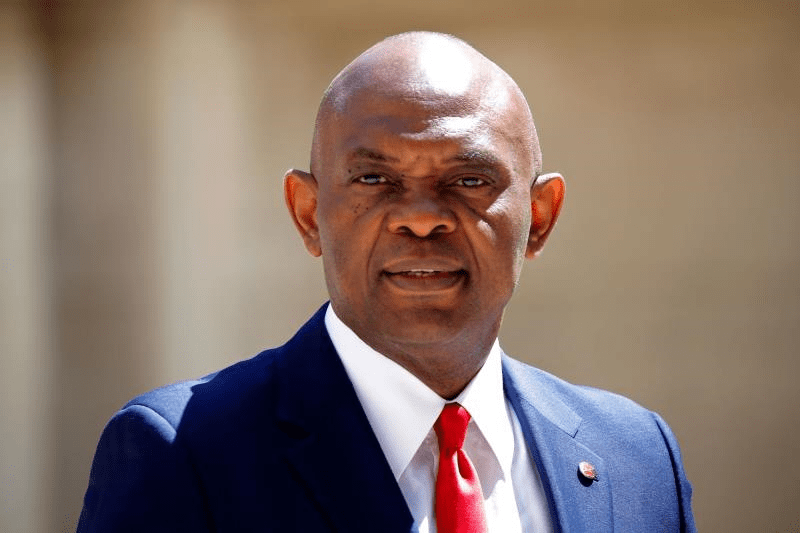By Keem Abdul
On the positive side, taxation is, in the words of the American historian, Albert Hart, the price which civilized communities pay for the opportunity of REMAINING civilized. And on the negative side, the great American writer, Mark Twain, cynically called tax “a fine for doing well.” Whichever way one looks at it, paying tax is not exactly one of our favorite pastimes as humans, and most of us would rather NOT pay it if we can safely avoid doing so.
It is in light of this, then, that one can safely say that agencies whose mandate is to collect tax, or otherwise mobilize revenues from the hard-earned incomes of the citizens or corporate entities in a community, can NEVER win any popularity contests. However, their success in performing precisely that mandate is what moves the fortunes of that community forward.
That is the paradox in which Nigeria’s Federal Inland Revenue Service (FIRS) the agency responsible for assessing, collecting and accounting for tax and other revenues accruing to the Federal Government of Nigeria, finds itself as it strives to maximize the opportunities – and mitigate the challenges – of the tax and revenue mobilization ecosystem in Nigeria. The agency, which traces its origins back to 1943 (when Nigeria was still under colonial rule} gained greater impetus in the 2000s when the FG recognized that poor service delivery in the public sector – including revenue management – had become a developmental albatross, and undertook a series of steps to ameliorate the situation. Thanks to a plethora of reforms and initiatives, the FIRS has since then increased its capacity to deliver on its core mandate, namely:
– Timely publication of accurate data and annual reports to the FG and other stakeholders to inform national economic planning, academic research, tax policy and development legislation;
– Timely provision of tax advisory services, rulings, guidance notes and clarifications on request;
– Regular investigation, enforcement and prosecution of tax defaulters as provided by the law;
– Issuance of ‘Taxpayer Identification Numbers’ (TIN) at no cost to the taxpayer;
– Prompt processing of payment claims and tax refund requests received, within stated timeframes;
– Undertaking appropriate actions to reduce the arrears position of the service and minimize debt profile;
– Regular and accurate reconciliation of taxes received into Federation, Consolidated and VAT, as the case may be; and
– Provision of tax education and information to taxpayers through diverse channels and languages.
Working to fulfill the above mandate may seem like a rather unexciting undertaking, but, in truth, the experience of many tax and revenue specialists over the years has shown that it does call for some level of intellectual dexterity and even creativity – especially in a country like ours which is grappling with an abysmal level of tax compliance. You’ll need all the creative dexterity you can muster if you find yourself called upon to make the case for greater tax compliance among individuals and entities.
It is such dexterity, coupled with a profound financial and managerial acumen, that Zacchaeus Adedeji, PhD, brings to his work as the Executive Chairman of the FIRS at this critical juncture in Nigeria’s economic trajectory. A well-trained tax, accounting and management professional, Zacch (as his friends call him) was tasked, upon his appointment by President Bola Ahmed Tinubu, with a mandate to provide strategic leadership, foster a culture of excellence, collaborate on fiscal policies with other relevant MDAs of the government as well as the private sector, and enhance revenue collection.
From his first day in his new role, Zacch Adedeji showed that he clearly understood the enormity of what he had signed up for. In Nigeria, the search for a sustainable source of public finance in the wake of dwindling revenues from oil has brought taxation, and especially the role of the FIRS (and its sister agencies at sub-national levels) to the forefront of public attention, against the backdrop of perennially low tax compliance, for which reason government has always resorted to the unsustainable practice of borrowing as a way of financing the country’s annual budgets.
But in the months since he has been at the helm, he has proved to be the proverbial round peg in a round hole – no surprise there, because Adedeji has always been considered by his peers as something of an accountancy and financial whiz-kid. A first-class graduate in Accounting from the Obafemi Awolowo University (OAU), Ife, he boasts years of experience in corporate accounting, public service administration and advisory. Indeed, his entire career has been a showcase of unparalleled virtuosity in his chosen field. Born in January 1978 in the town of Iwo-Ate in Ogo-Oluwa LGA of Oyo State, Nigeria (to a family that is deeply rooted in the cocoa trade, and from whom he developed an early appreciation for commerce and trade), Adedeji obtained his education at the Federal Polytechnic, Ede, Osun State, from which he received a National Diploma in Accounting. He then attended the aforementioned OAU, Ife, where he bagged a Bachelor of Science (First Class) in Accounting. He went on to obtain a Master of Science degree in Accounting, as well as a doctorate degree, both also from the OAU. He is an alumnus of the prestigious Harvard Kennedy School of Government in the United States, where he attended an Executive Course in Economic Development.
His eventful work experience includes stints at such reputable multinational organizations as Procter & Gamble. An astute entrepreneur, Adedeji co-founded RTR, a financial consulting firm specializing in providing financial advisory and policy development services to public administrators and private institutions across West Africa.
At the age of 33, he was appointed Commissioner for Finance in Oyo State by the state’s late former Governor, Sen. Abiola Ajimobi – in which role he famously led the team that instituted a medium-term financial strategy for the overall framework of financial and budgetary management in the Pacesetter State. In recognition of his expertise in corporate tax and public finance development, Adedeji was appointed the Executive Secretary of the National Sugar Development Council. On the advent of the Tinubu Presidency, he served briefly as the Special Adviser (Revenue) to the President before his present appointment at the helm of the FIRS.
Under Adedeji, the FIRS is embarking on this most arduous of assignments with support from the highest quarters – from President Tinubu down to the Presidential Committee on Tax Policy and Fiscal Reforms, which has emphasized the primacy of the FIRS when it comes to the collection and management of revenues due the FG. Before now, the cost of collecting tax was unusually high – due to the fact that there were too many MDAs engaged in the same thing, i.e. running around trying to meet all manner of revenue targets. Because they were not originally set up to do so, their efforts were over the years plagued by inefficiency and failure. Today, however, all those revenue collection functions are domiciled in the FIRS, with the result that the cost of collection and efficiency has improved tremendously – with positive outcomes for the work of said MDAs and the economy as a whole.
Since the advent of the Tinubu Administration, the FIRS has been nimble on its feet, thanks to the regime of efficiency, speed and timeliness of service delivery put in place by Dr. Adedeji (a man who has serially demonstrated his capacity for innovation throughout his work life). As Nigeria looks forward to transforming its tax/revenue mobilization and management ecosystem, Dr. Adedeji and his agency continue to tick the relevant boxes – with the result that, today, non-oil revenues have experienced an uptick, with more than 170,000 new taxpayers and a 20% increase in tax compliance since last year. This rise was occasioned by – and has in turn catalyzed – the emergence of new businesses and industries in the country. The ongoing simplification and unification of the tax payment system has also played an important role.
Far from being merely ‘a fine for doing well’, Adedeji says the focus of his agency is help spread prosperity, and to help companies grow. “We have … resolved to create an environment of growth,” he says, “by removing every obstacle in the way of corporate entities, and by ensuring a tax administration system that is friendly, customer-centric, and ready to help businesses to bear more fruits.”
Already, growth at various levels is being recorded across revenue sources such as VAT, Import Duty, the Ecological and Mining Tax Levies (EMTL), the Common External Tariff (CET) levies, the Companies Income Tax (CIT) and the Import & Excise Duties, among others.
Historically, the role of the tax collector was looked down upon by society. Two Bible characters, Matthew and Zacchaeus, for example, were portrayed as disreputable characters; they were distrusted and treated with scorn by most of their fellow Jews.
But far from the opprobrium associated with his Biblical namesake, Nigeria’s modern-day Zacchaeus has received plaudits and recognitions from various influential quarters, as he continues to carry out, with diligence and expertise, the task of putting the country on the strongest possible revenue pedestal.
Nigeria’s taxation Czar wants to be the Zacchaeus who reset the paradigm of taxation as a catalyst for the growth of an economy which is taking slow but sure steps towards a future in which it is no longer dependent solely on oil revenues.
• Keem Abdul, publisher and writer, hails from Lagos. He can be reached via +2348038795377 or Akeemabdul2023@gmail.com




